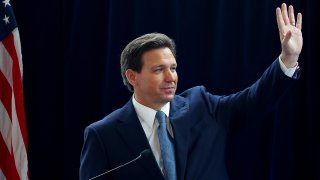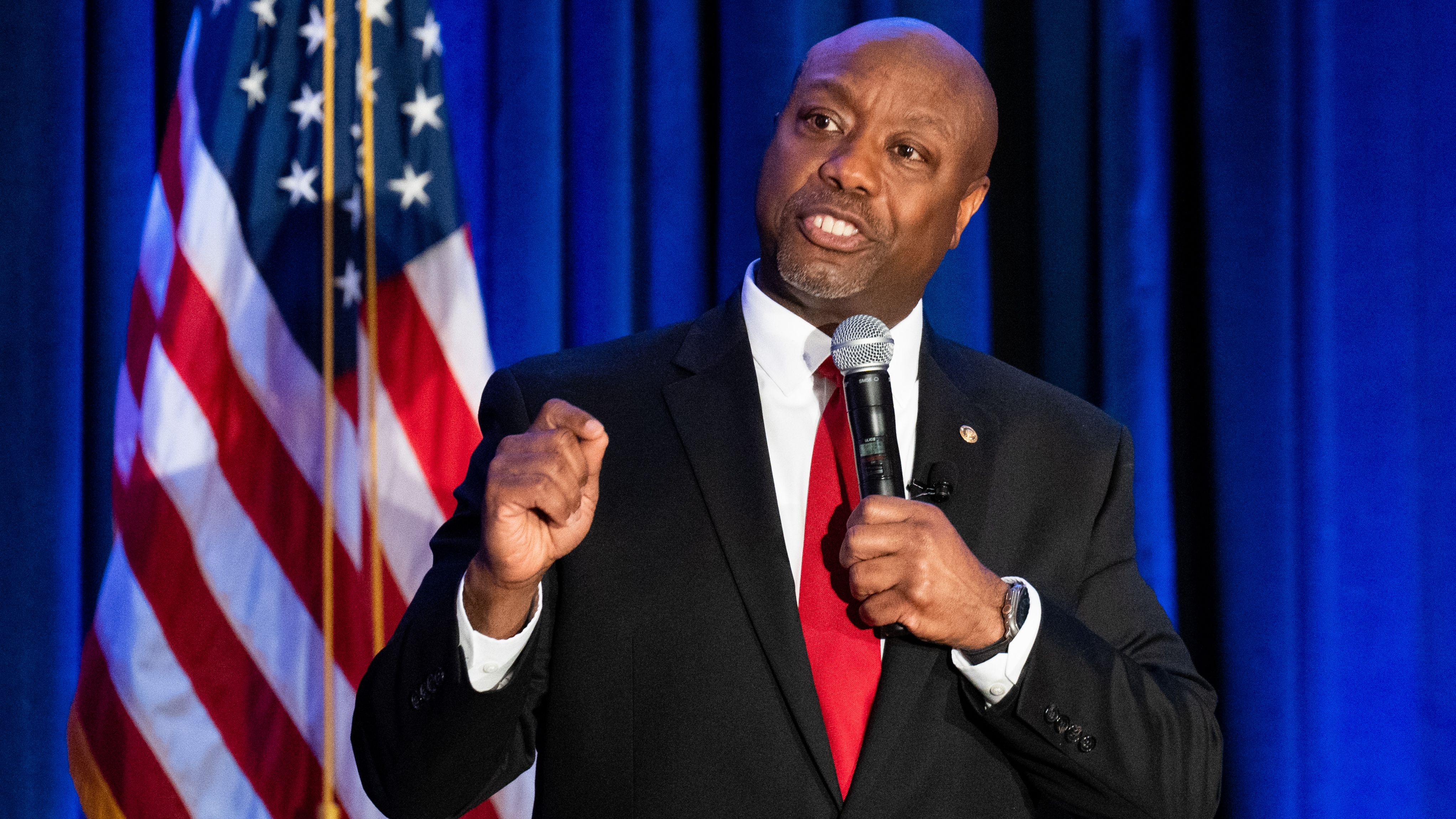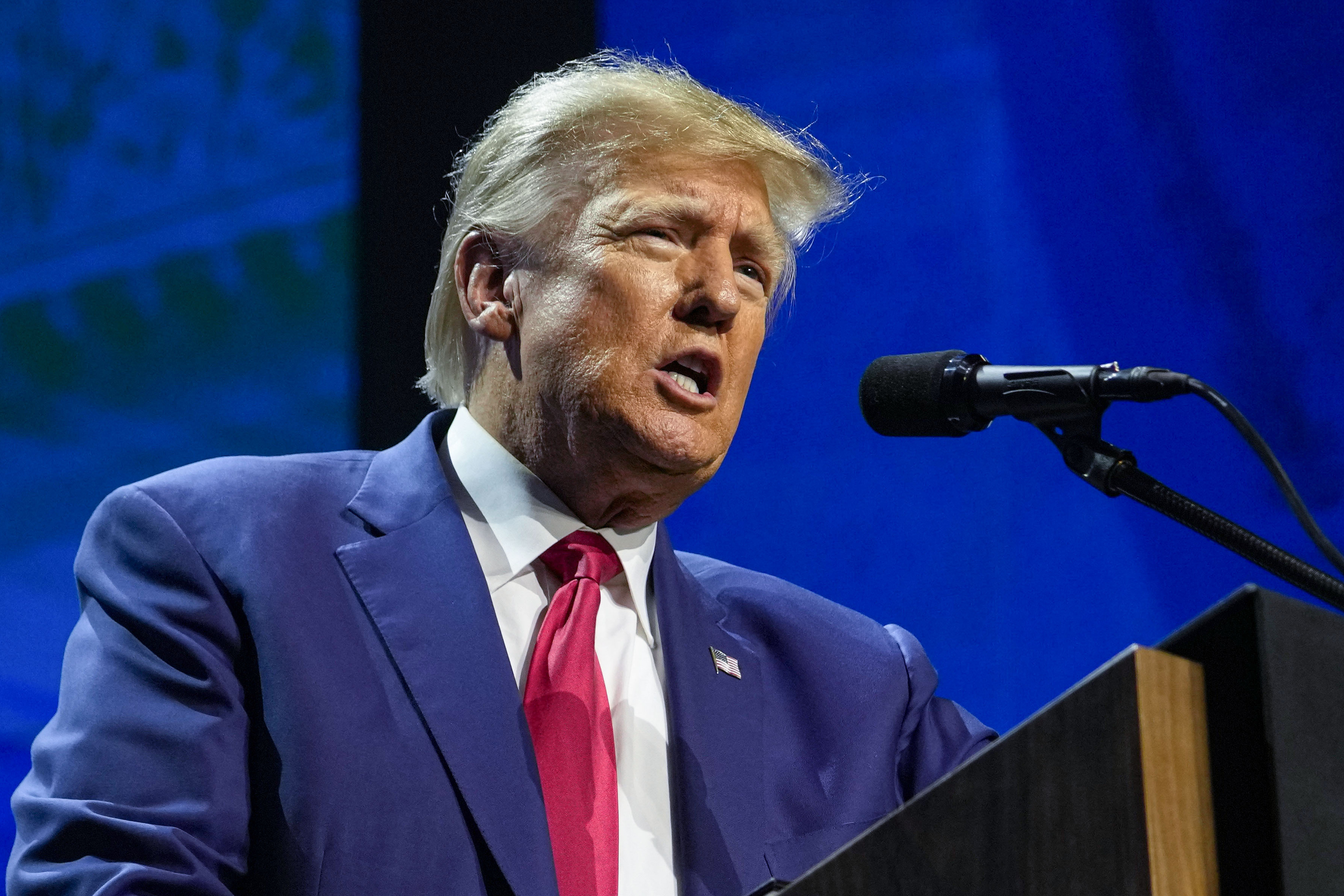
Florida Gov. Ron DeSantis launched his 2024 presidential campaign on Wednesday with firm words but a disastrous Twitter announcement that did little to counter criticism that the 44-year-old Republican may not be ready to take on former President Donald Trump.
While he tried to project confidence, DeSantis' unusual decision to announce his campaign in an online conversation with Twitter CEO Elon Musk ultimately backfired. The audio stream crashed repeatedly, making it virtually impossible for most users to hear the new presidential candidate in real time.
“American decline is not inevitable, it is a choice. And we should choose a new direction — a path that will lead to American revitalization,” DeSantis said on the glitchy stream, racing through his conservative accomplishments. “I am running for president of the United States to lead our great American comeback."
While his critics in both parties delighted in the rocky start, DeSantis' announcement marks a new chapter in his extraordinary rise from little-known congressman to two-term governor to a leading figure in the nation’s bitter fights over race, gender, abortion and other divisive issues.
Get Tri-state area news and weather forecasts to your inbox. Sign up for NBC New York newsletters.
DeSantis’ path to the Republican presidential nomination will not be an easy one.
He enters the race looking up at Trump in early polls while facing serious questions about his far-right policies, his campaign-trail personality and his lack of relationships across the Republican ecosystem. He has generated significant interest among GOP primary voters by casting himself as a younger and more electable version of the 76-year-old former president.
He did not mention Trump even once in his discussion with Musk that ultimately spanned more than an hour. But he said he was ready to fight.
“Buckle up when I get in there, because the status quo is not acceptable,” DeSantis said.
The ultimate Republican nominee is expected to face Democratic President Joe Biden on the general election ballot in November 2024.
DeSantis joins a field that also includes former U.N. Ambassador Nikki Haley, Sen. Tim Scott of South Carolina, former Arkansas Gov. Asa Hutchinson and biotech entrepreneur Vivek Ramaswamy. Former Vice President Mike Pence is also considered a likely presidential candidate but has not yet announced a bid.
The governor has been courting primary voters in key states for much of the year and using an allied super political action committee to build a large political organization that was essentially a campaign in waiting and claims at least $30 million in the bank.
In choosing Twitter on Wednesday evening, DeSantis tried to take a page out of the playbook that helped turn businessman-TV celebrity Trump into a political star.
It did not go as planned.
The online event started off with technical glitches that Musk said were due to “straining” servers because so many people were trying to listen to the audio-only event. More than 20 minutes passed beyond the scheduled start time with users getting kicked off, hearing microphone feedback, hold music and other technical problems.
“You can tell by the mistakes that it’s real,” said Musk.
DeSantis' Republican opponents piled on.
The lead strategist for Haley’s super PAC, Mark Harris, was merciless: “Failed soft launch? Check. Failed announcement? Double check. We look forward to Ron DeSantis’ failed campaign.”
"This is a disaster. Not surprising,” tweeted senior Trump adviser Chris LaCivita.
DeSantis, who likely would not have become the Florida governor without Trump’s endorsement, has adopted the former president’s fiery personality, his populist policies and even some of his rhetoric and mannerisms.
Yet DeSantis has one thing his rival does not: a credible claim that he may be more electable than Trump, who faces multiple legal threats, including criminal charges in New York, and who presided over Republican losses in three consecutive national elections.
DeSantis, just six months ago, won his reelection in Florida by a stunning 19 percentage points — even as Republicans in many other states struggled. He also scored several major policy victories during the Republican-controlled Legislature’s spring session.
Aware of DeSantis’ draw, Trump has been almost singularly focused on undermining his political appeal for months. Trump and his team believe that DeSantis may be Trump’s only legitimate threat for the nomination.
Hours before the announcement, Trump argued in a social media post that “Ron DeSanctus” cannot win the general election or the GOP primary because of his previous votes in Congress on Social Security and Medicare.
“He desperately needs a personality transplant and, to the best of my knowledge, they are not medically available yet," Trump added. "A disloyal person!”
The kitchen-sink attacks and nicknames won’t be DeSantis’ only hurdle.
He is a political heavyweight in Florida and a regular on Fox News, but allies acknowledge that most primary voters in other states don’t know him well.
Despite his lengthy resume, friends and foes alike note that DeSantis struggles to display the campaign-trail charisma and quick-on-your-feet thinking that often defines successful candidates at the national level. He has gone to great lengths to avoid unscripted public appearances and media scrutiny while governor, which is difficult, if not impossible, as a presidential contender.
The Florida governor spent most of Wednesday behind closed doors.
In an example of his level of media avoidance, his official Twitter account for governor posted a photo shortly after the FEC filing — a bill signing surrounded by dozens of bikers for legislation to help reduce motorcycle accidents in Florida. The media was not notified of the event ahead of time.
Late Wednesday, DeSantis’ office announced that he signed a broad election law bill that contains a provision allowing him to run for president without resigning his post as governor, exempting himself from a state rule known as “resign to run.”
Would-be supporters also worry that DeSantis has refused to invest in relationships with party leaders or fellow elected officials, raising questions about his ability to build the coalition he would ultimately need to beat Trump. By contrast, Trump has scooped up an army of endorsements in key states, including Florida.
Beyond the primary, DeSantis’ greatest longer-term challenge may rest with the far-right policies he enacted as governor as an unapologetic leader in what he calls his “war on woke.”
“We will never surrender to the woke mob and we will leave woke ideology in the dustbin of history," he said once the Twitter stream started working.
More: Decision 2024
The Florida governor sent dozens of immigrants from Texas to Martha’s Vineyard off the Massachusetts coast to draw attention to the influx of Latin American immigrants trying to cross the U.S.-Mexico border. He signed and then expanded the Parental Rights in Education bill — known by critics as the “Don’t Say Gay” law, which bans instruction or classroom discussion of LGBTQ+ issues in Florida public schools for all grades.
More recently, he signed a law banning abortions at six weeks, which is before most women realize they’re pregnant. And he removed an elected prosecutor who vowed not to charge people under Florida’s new abortion restrictions or doctors who provide gender-affirming care.
DeSantis also signed a law this year allowing Florida residents to carry concealed firearms without a permit. He pushed new measures that critics warn would weaken press freedoms. He also took control of a liberal arts college that he believed was indoctrinating students with leftist ideology.
The governor’s highest-profile political fight has come against the Florida entertainment giant Disney, which publicly opposed his “Don’t Say Gay” law. In retaliation, DeSantis seized control of Disney World’s governing body and installed loyalists who are threatening to take over park planning, among other extraordinary measures.
___



